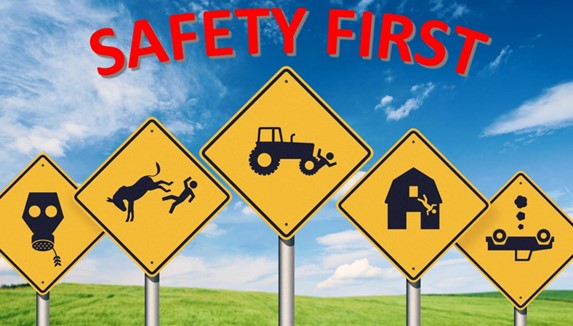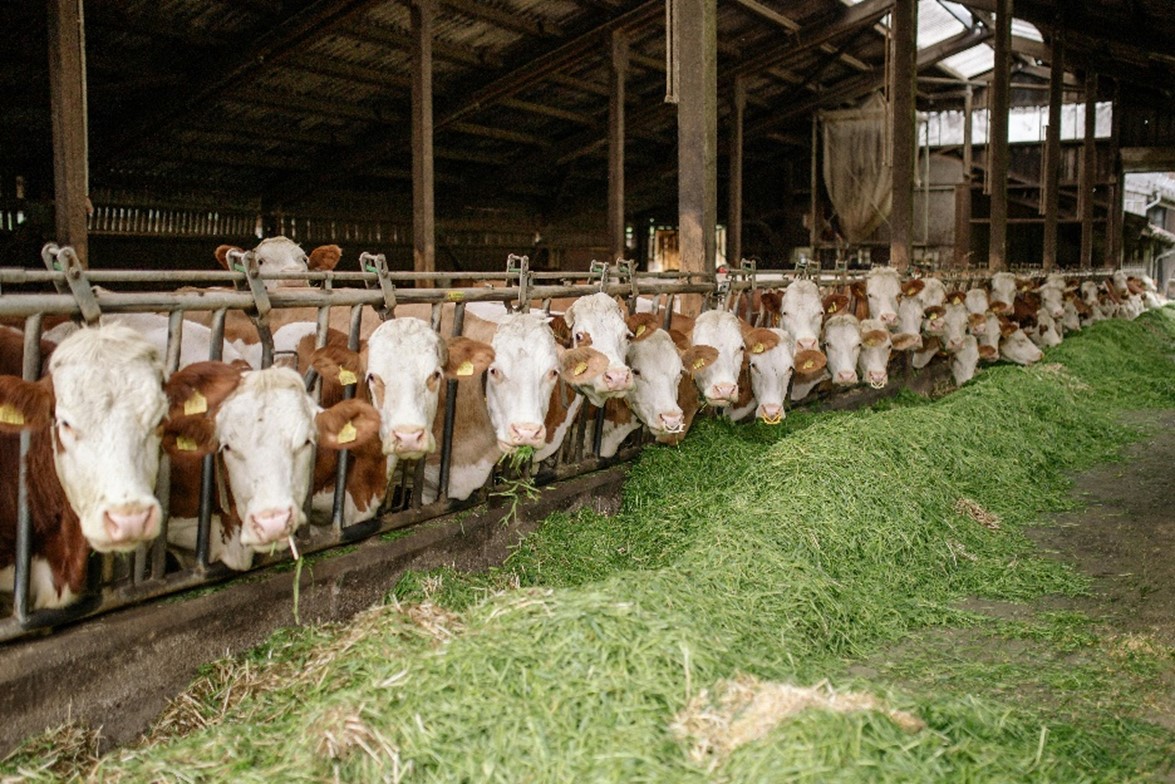
9 Life-saving Farm safety practices you can implement on your farm
Promoting Farm Safety: Essential Practices for Farmers
It’s unfortunate but true that the agriculture industry consistently maintains the poorest safety record across Ireland. Farm Safety info plays a crucial role in addressing this issue head-on by raising awareness about the alarming frequency of farm-related accidents and fatalities. The ultimate goal is to eliminate unsafe farming practices. Ensuring Farm safety is important not just for compliance with regulations but for the well-being of everyone involved.
This blog outlines key safety measures that farmers can implement to create a safer working environment:
1. Recognise Farm-Specific Hazards
The first step in improving farm safety is to identify and understand the specific hazards that are present on your farm. These can include risks associated with operating heavy machinery, handling livestock, using agricultural chemicals, and navigating rugged terrain. Recognising these hazards allows you to tailor your safety strategies effectively.
2. Invest in Training and Education
Ongoing education and training are vital to maintaining a safe farm. Farmers should ensure that they and their employees are trained in:
Machinery Operation: Safe handling and operation of all farm equipment.
Emergency Response: Procedures to follow in case of different types of emergencies, such as machinery malfunctions or chemical spills.
Chemical Safety: Proper usage, storage, and disposal of agricultural chemicals.
Regular training helps keep safety knowledge fresh and can introduce new techniques and regulations.
3. Maintain Equipment Regularly
Keeping farm equipment in good working condition is essential to prevent accidents. Establish a maintenance routine that includes:
Pre-season and post-season inspections: Check and service all equipment before and after the major agricultural seasons.
Regular checks: Routine inspections to identify potential malfunctions like brake failures or hydraulic leaks.
Do not “Risk It” – if you do not know how to use the equipment get someone to advise you or find out how to use it safely.
4. Establish Clear Safety Procedures
Developing and enforcing clear safety procedures can significantly reduce risks. Important safety measures include:
Personal Protective Equipment (PPE): Ensuring that all farm workers wear appropriate PPE such as gloves, boots, and eye protection.
Signage and Barriers: Using signs and physical barriers to denote hazardous areas, especially around machinery and chemical storage.
5. Be Weather-Wise
Weather plays a critical role in farming operations and can pose significant risks, farmers should:
Monitor forecasts: Keep an eye on weather updates to plan farm activities safely around weather conditions.
Adapt operations: Modify or postpone operations to avoid working in hazardous weather conditions like storms or extreme heat, especially when transporting animals.
In addition, ensure your animals have sufficient reserves of water, fodder, and a place to take shelter at all times.
6. Focus on Mental Health
Farming can be a stressful occupation, with long hours and significant pressures. Prioritising mental health is as important as physical safety.
Encourage breaks: Regular breaks help manage stress and reduce fatigue. Support services: Provide access to mental health resources and support systems.
7. Stay Updated on Regulations
Farming regulations can evolve, so it’s important to stay informed about the latest safety laws and practices. Participating in local agricultural organisations and attending farming conferences can keep you updated and compliant.
Get a copy of the booklet “Farm well…Farm Safety” from the ESB Networks , here. It tells you all you need to know about using electric equipment on your farm.
8. Foster a Safety Culture
Creating a culture that prioritises safety can lead to proactive rather than reactive management of hazards. Encourage:
Open Communication: Allow team members to voice concerns and suggestions about safety without fear of repercussions.
Learning from Incidents: Discuss and learn from safety incidents and near-misses to prevent future occurrences.
In summary:
In the fast-paced world of farming, it’s easy to get caught up in the day-to-day tasks and challenges. However, when it comes to safety, being proactive is essential. Waiting until problems arise is a reactive approach that can lead to serious consequences. That’s why taking the time to assess potential risks and hazards during quieter periods is important.
In short, for farmers creating a safe working environment is essential not only for the health and safety of all involved but also for the productivity and sustainability of the farm. By implementing these safety practices, farmers can ensure a safer, more efficient farming operation, building a foundation for ultimate long-term success. #farmsafety.
If you’ve found the insights shared in this blog valuable, the IFA has a dedicated page to promoting farm safety. Read for more exclusive content about Farm safety here.
Don’t miss out – Follow us today and stay in the loop @vendorfinance.ie! Email us at commercial@vendorfinance.ie or call us 0719310137 if you’re looking to upgrade your farming machinery or buy new.
Interested in similar stories? Check out the blog here



